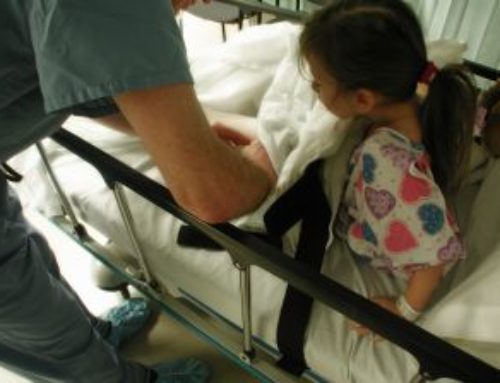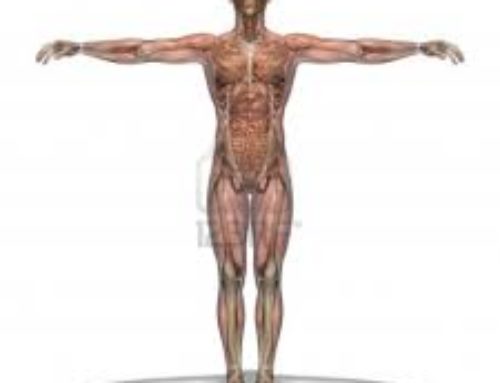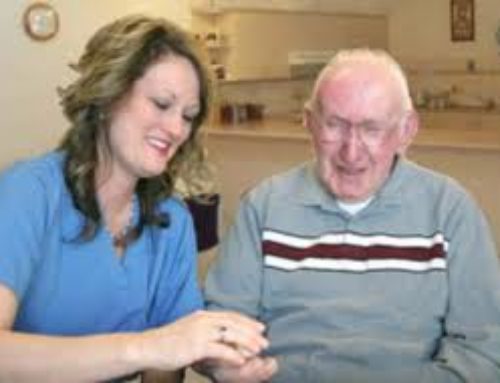
Introduction
Constipation is a symptom, not a disease, and can be caused by many factors.
To understand constipation, it helps to be familiar with how the colon, or large intestine, works. When food travels through the colon, the water is absorbed by the colon while it forms stool. Muscle contractions in the colon then push the stool down toward the rectum. Upon reaching the rectum the stool is solid, because most of the water has been absorbed.
Constipation occurs when the colon absorbs too much water or if the colon’s muscle contractions are sluggish or slow, consequentially the stool moves through the colon too slowly. As a result, stools can become hard and dry.
Sign and Symptoms
It is defined as having any two of the following symptoms for at least 12 weeks within the previous 12 months:
- straining during bowel movements
- hard or lumpy stools
- sensation of anorectal blockage/obstruction
- sensation of incomplete evacuation
- fewer than three bowel movements per week
Causes
Common causes of constipation include:
1. A diet lacking in fibre
Eating foods rich in animal fats such as dairy products, eggs and meats or refined sugar but lacking in fibre such as whole grains, fruits, and vegetables may cause constipation.
- Medications
Some medications can cause constipation including
- pain medications (especially narcotics)
- antacids that contain aluminum and calcium
- blood pressure medications (calcium channel blockers)
- antiparkinson drugs
- antispasmodics
- antidepressants
- iron supplements
- diuretics and
- anticonvulsants.
- Lifestyle changes such as pregnancy, aging, and travel.
During pregnancy, women may be constipated because of hormonal changes or because the uterus compresses the intestine. Aging may also affect bowel regularity, because a slower metabolism results in less intestinal activity and muscle tone. In addition, people often become constipated when travelling, because their normal diet and daily routine are disrupted.
- Lack of physical activity
- Abuse of laxatives
Some people particularly the elderly think that they should have a daily bowel movement and often access laxatives, suppositories and / or enemas to achieve this. Initially this brings relief however the colon starts to depend on the helping hand to initiate a bowel movement.
- Ignoring the urge to have a bowel movement
People can become too busy or emotionally stressed and ignore the urge to have a bowel movement. Eventually this urge will disappear and result in constipation.
- Dehydration
When water is in short supply in the body, the colon will act to restrict unnecessary water loss through the stools, in turn drying them up and making them hard to pass.
- Specific diseases or conditions, such as stroke (most common)
Diseases that cause constipation include neurological disorders, metabolic and endocrine disorders, and systemic conditions that affect organ systems. These disorders can slow the movement of stool through the colon, rectum, or anus.
Conditions that can cause constipation are found below.
- Neurological disorders
-
- Stroke
- Multiple sclerosis
- Parkinson’s disease
- spinal cord injuries
- Metabolic and endocrine conditions
- Diabetes
- Hypercalcemia
- Hypothyroidism
- Systemic disorders
- amyloidosis
- lupus
- scleroderma
- Problems with the colon and rectum
The two types of constipation are idiopathic constipation and functional constipation. Irritable bowel syndrome (IBS) with predominant symptoms of constipation is categorized separately.
Idiopathic or of unknown origin constipation does not respond to standard treatment.
Functional constipation means that the bowel is healthy but not working properly. The cause of functional constipation is largely a result of poor dietary habits and lifestyle. It occurs in both children and adults and is most common in women.
Functional constipation is broken down into three sub types colonic inertia, delayed transit, and pelvic floor dysfunction.
Colonic inertia and delayed transit are caused by a decrease in muscle activity in the colon. These syndromes may affect the entire colon or may be confined to the lower, or sigmoid, colon.
Pelvic floor dysfunction is caused by a weakness of the muscles in the pelvis surrounding the anus and rectum. However, because this group of muscles is voluntarily controlled to some extent, biofeedback training is somewhat successful in retraining the muscles to function normally and improving the ability to have a bowel movement.
Functional constipation that stems from problems in the structure of the anus and rectum is known as anorectal dysfunction, or anismus. These abnormalities result in an inability to relax the rectal and anal muscles that allow stool to exit.
- Chronic idiopathic constipation
Chronic constipation is a disorder of colon motility which is present for at least 3 months and results in infrequent bowel movements and demonstrated difficulty in evacuating stools.
- Irritable bowel syndrome (IBS)
IBS is a chronic, recurrent disorder characterized by the multiple symptoms of abdominal pain and discomfort, bloating, and extreme changes of bowel habits such as constipation and/or diarrhea. IBS is considered to be one of the most common gastrointestinal disorders. Although IBS can produce lifelong symptoms, it is not a life-threatening condition. It often worsens with stress, but there is no specific cause or anything unusual that the doctor can see in the colon.
Diagnosis
The tests the doctor performs depend on the person’s age, the duration and severity of the constipation and whether blood in stools, recent changes in bowel habits, or weight loss have occurred. Most people, particularly younger people with constipation do not need extensive testing and can be treated with changes in diet and exercise.
Medical History
The doctor may ask a patient to describe their constipation, including duration of symptoms, frequency of bowel movements, consistency of stools, and if any blood is present in the stools. In addition information about their eating habits, medications, and level of physical activity will also help the doctor determine the cause of constipation.
Physical Examination
A physical exam may include a rectal exam with a gloved, lubricated finger to evaluate the anal sphincter, the muscle that closes off the anus. The examination is to detect tenderness of the muscle, identify any obstruction or tearing. In some cases, pathology tests such as blood and thyroid tests may be necessary to look for thyroid disease and serum calcium or to rule out inflammatory, metabolic, and other disorders.
Extensive testing usually is reserved for people with severe symptoms, for those with sudden changes in the number and consistency of bowel movements or blood in the stool, and older adults.
Additional tests that may be used to evaluate constipation include colorectal transit study, anorectal function test, which diagnose constipation caused by abnormal functioning of the anus or rectum and a defecography, which evaluates completeness of stool elimination, identifies anorectal abnormalities, and evaluates rectal muscle contractions and relaxation.
Because of an increased risk of colorectal cancer in older adults, the doctor may use tests to rule out a diagnosis of cancer, including a barium enema x ray. This x-ray views the rectum, colon, and lower part of the small intestine to locate problems. Additionally the doctor may perform a sigmoidoscopy or colonoscopy. An examination of the rectum and lower, or sigmoid, colon is called a sigmoidoscopy. An examination of the entire colon and rectum is called a colonoscopy.
Complications
Left unmanaged constipation can lead to an array of complications including haemorrhoids, anal fissures, rectal prolapse and fecal impaction.
Haemorrhoids are caused by straining to have a bowel movement. Treatment for haemorrhoids may include submerging in a warm tub bath, applying an ice packs and applying a special cream to the affected area.
Anal fissures are a tear in the skin around the anus which is caused when hard stool stretches the sphincter muscle. As a result, rectal bleeding may occur, appearing as bright red streaks on the surface of the stool. Treatment for anal fissures may include stretching the sphincter muscle or surgically removing the tissue or skin in the affected area.
Sometimes straining causes a small amount of intestinal lining to push out from the anal opening. This condition, known as rectal prolapse, may lead to secretion of mucus from the anus. Usually eliminating the cause of the prolapse, such as straining or coughing, is the only treatment necessary. Severe or chronic prolapse requires surgery to strengthen and tighten the anal sphincter muscle or to repair the prolapsed lining.
Constipation may also cause hard stool to pack the intestine and rectum so tightly that the normal pushing action of the colon is not enough to expel the stool. This condition, called fecal impaction, occurs most often in children and older adults. An impaction can be softened with mineral oil taken by mouth and by an enema. After softening the impaction, the doctor may break up and remove part of the hardened stool by inserting one or two fingers into the anus.
Treatment
Although treatment depends on the cause, severity, and duration of the constipation, in most cases dietary and lifestyle changes will help relieve symptoms and help prevent them from recurring.
Diet
A diet with enough fibre approximately 20 to 35 grams each day helps the body form soft, bulky stool. High-fibre foods include beans, whole grains and bran cereals, fresh fruits, and vegetables such as spinach, cabbage, and carrots. For people prone to constipation, limiting foods that have little or no fibre, such as dairy food, meat and processed foods is also important.
Lifestyle Changes
Other changes that may help treat and prevent constipation include drinking enough water so as not to become dehydrated, engaging in daily exercise, and reserving enough time to have a bowel movement. In addition, the urge to have a bowel movement should not be ignored.
Laxatives
Most people who are mildly constipated do not need laxatives. However, for those who have made diet and lifestyle changes and are still constipated, a doctor may recommend laxatives or enemas for a limited time. These treatments can help retrain a chronically sluggish bowel. For children, short-term treatment with laxatives, along with retraining to establish regular bowel habits, helps prevent constipation.
Surgery
Under medical direction and failing many other interventions, a small percentage of patients with long standing constipation may require surgery.
Alternative therapies
Acupuncture
The studies investigating acupuncture treatment for constipation not found any clinically significant findings, which suggests that acupuncture provides no benefit beyond conventional treatment but no harm either.
Biofeedback
People with chronic constipation caused by anorectal dysfunction can use biofeedback to retrain the muscles that control bowel movements. Biofeedback involves using a sensor to monitor muscle activity, which is displayed on a computer screen, allowing for an accurate assessment of body functions.
Homeopathy
Limited studies have examined the effectiveness of specific homeopathic therapies, professional homeopaths may consider the vast array of remedies help in the treatment of constipation based on their knowledge and experience.
Herbal
Calcarea carbonica – Recommended for constipation without the urge to have a bowel movement. This remedy is most appropriate for individuals who tend to be overweight, lack stamina, experience heartburn, and produce sour-smelling belches.
Nux vomica – Ideal for constipation accompanied by a constant urge to move the bowels, but with little success.
Silica – Suited for constipation with the sensation that stool remains in the rectum after bowel movements or children for whom may be wary of going to the bathroom.
Bryonia — Appropriate for constipation with large, hard, dry stools.
Lycopodium – Best for small, hard stools with flatulance and bloating following a meal.
Senna – known to Arabian physicians as early as the ninth century as a food and dietary supplement, is an effective and long-established remedy for constipation. Senna contains a powerful natural laxative called anthraquinone.
Vitamins
Mulberry juice is reportedly beneficial for the digestive tract. It can stimulate digestion and assimilation of nutrients in the small intestine and consequentially useful for reliving constipation. Mulberry contains many minerals and vitamins. Boysenberry juice has a gentle natural laxative action on your bowel and subsequently very useful in moving things through your colon and when your constipation is only mild.
Bowel retraining
This education process may provide relief for people who have gotten into the habit of ignoring the urge. If a busy schedule has resulted in a tight sphincter, it may help to sit and relax on a toilet, with book in hand, about 20 minutes each morning to encourage a return of reflexes that have disappeared. Straining should be highly avoided, since it may lead to tightening of muscles that should be relaxed for comfortable defecation.






Leave A Comment